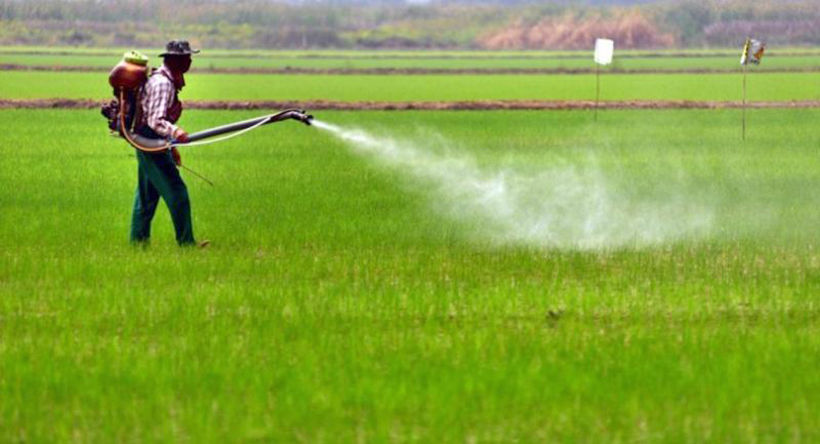90 day deadline for farmers to hand over banned agrochemicals

In the culmination of a long-running feud over hazardous farm chemicals, Thailand’s Department of Agriculture has finally given Thai farmers a 90 day deadline to turn in some herbicides and pesticides for destruction, as they are officially illegal. Manufacturers or importers of the chemicals now banned under Thai law have 270 days to destroy their stocks.
Yesterday’s announcement was in line with the Ministry of Industry’s May 15 decision to place paraquat and chlorpyrifos on the list of hazardous chemicals and ban their use in the kingdom, effective June 1. Farmers in possession of paraquat and chlorpyrifos must return the chemicals to designated shops between June 1 and August 29.
An adviser to the minister to the Ministry of Agriculture and Cooperatives says the ministry has set up a working group on three hazardous agrochemicals, including paraquat, chlorpyrifos and the controversial insecticide glyphosate. Guidelines on how to destroy the chemicals will be publicised at a later date.
Shops assigned to collect the chemicals have 120 days to collect all returned items, and complete documents must also be submitted to the department’s officials.
The shops will also be in charge of sending returned items to manufacturers or importers, who will have 270 days to destroy them. The destruction of the chemicals will be no later later than February 25 next year. They must fill a form to declare the amount returned, set up an eradication plan and submit the results of destruction to the department’s officials. The task of destroying them will not fall to the department.
Any person found in possession of the illegal agrochemicals will be fined 1 million baht and/or jailed for 10 years.
Thai Pesticide Alert Network’s coordinator says the department faces a challenge assembling a task force to create understanding with local farmers on how to deal with the two banned hazardous chemicals. They should be informed on how to drop them at the shops properly and “it would be useful if there are signs to let them know the drop locations.”
“We won’t regard this as a success but it is a step in the right direction for sustainable farming which relies less on chemicals. Thailand wants to be the world’s kitchen and the government must have a clear policy to produce safe food for the world.”
The secretary-general of the Federation of Safe Agriculture, laments that farmers are the ones most affected by the ban, saying even though they spent their own money to buy the chemicals, there is no compensation for them.
SOOURCE: Chiang Rai Times | Bangkok Post
Latest Thailand News
Follow The Thaiger on Google News:


























